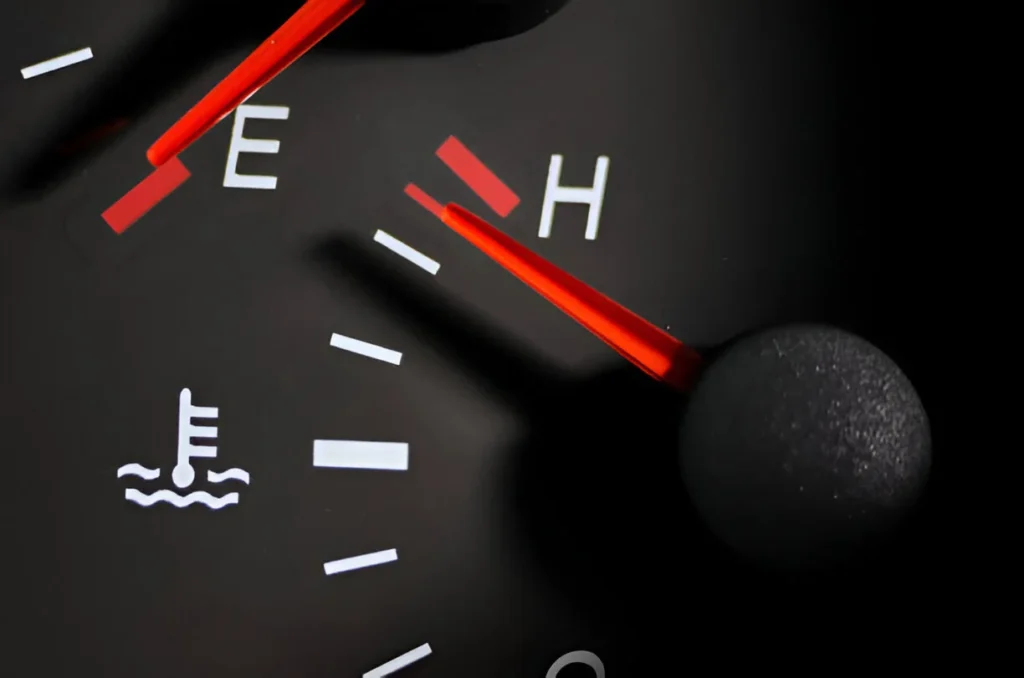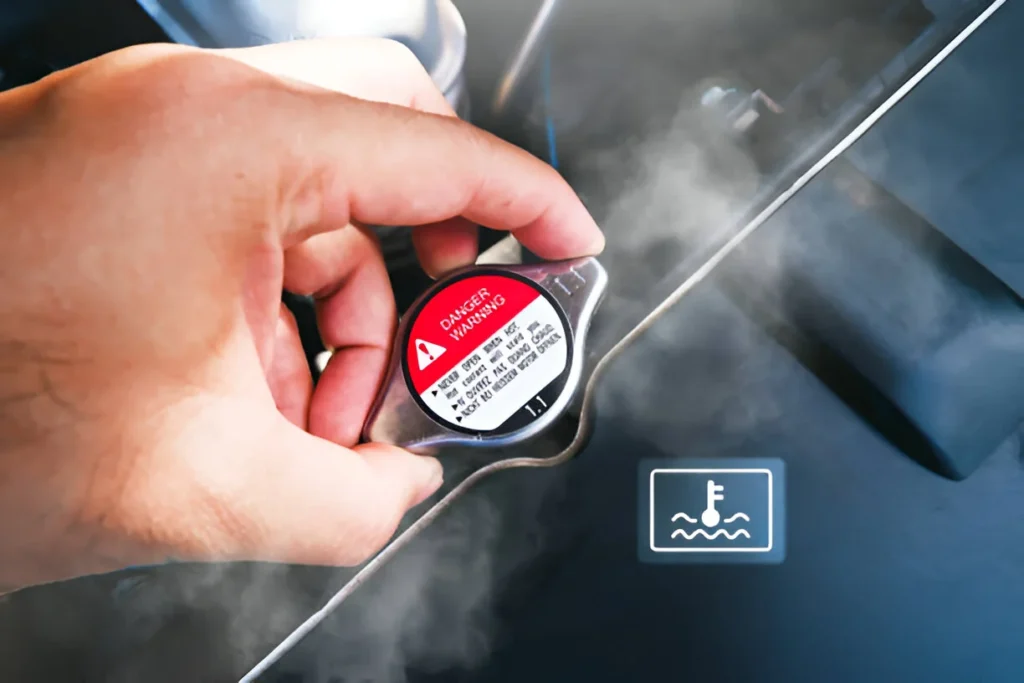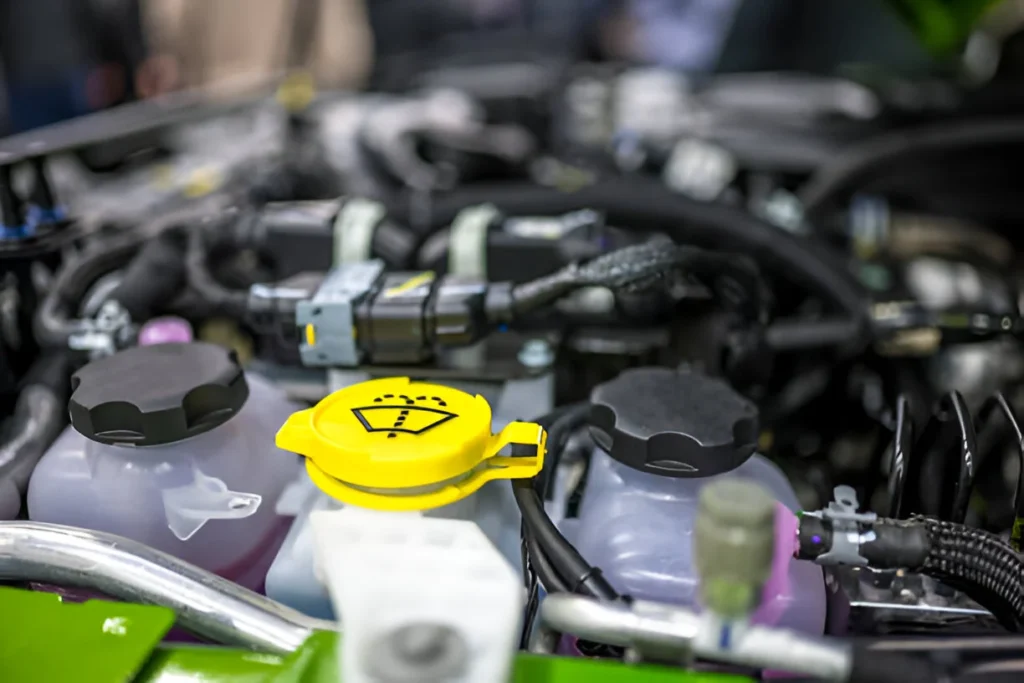
Introduction
Being a car owner you must be aware of the fact that being troubled by your car could never be fun and one of the most frustrating and potentially damaging issues you might encounter with your car could be car overheating. This common problem might not only leave you stranded alone but also it could cause damages that would be repaired expensively.
The reasons for this problem could be anything, engine overheating, coolant leakage or low coolant levels.
In this article we will guide you to know the causes, signs and the necessary tips that would help you in identifying the signs and prevention from any such incidents.
Understand What Causes Overheating
As we all know a car engine is a complex machine, which produces lots of heat while operating. To function properly this heat needs to be regulated within a certain temperature range. This is where the function of the car’s cooling system starts, which is a network of intricately connected components that work together to absorb and diffuse the heat into the environment.
However there are various factors that could disturb this process which may result in overheating of your car. Some of these are:
1- Low Coolant Levels:
One of the primary and most common reasons is low coolant levels. The car coolant, a mix of water and antifreeze, acts as a heat-transferring agent. It absorbs heat from the engine and transfers it to the radiator for diffusion. Consequently, it helps operate your car engine at an optimal temperature. Therefore, if the coolant level is insufficient to absorb and transfer the heat, the engine might overheat. Additionally, maintaining the right coolant level is essential to prevent severe engine damage and ensure smooth performance. Furthermore, regularly checking and topping up your coolant can save you from costly repairs and unexpected breakdowns.
2- Coolant leak:
A coolant leak can drastically reduce the coolant level in your car, potentially leading to overheating. These leaks can occur in any part of the car’s cooling system, including the radiator, hoses, water pump, and the engine itself. By regularly checking, you can identify and fix leaks promptly, thus preventing further damage. Additionally, timely detection of leaks ensures the cooling system functions efficiently, protecting your engine from severe issues. Furthermore, maintaining a routine inspection schedule helps in catching potential problems early, thereby enhancing the longevity and reliability of your vehicle.
3- Stuck Thermostat:
The thermostat regulates the flow of coolant in the engine. If it gets stuck in a closed position, it prevents circulation of coolant therefore causing the engine to overheat.
4- Issues With The Radiator:
The radiator is the heart of a car’s cooling system, playing a pivotal role in cooling the car’s temperature by disposing of the heat from the coolant. If it does not work properly, it cannot perform efficiently, causing the car to overheat. Therefore, regularly maintaining it and ensuring it is not clogged with dust, dirt, or rust will make it work properly. Additionally, regular cleaning and inspection of the radiator ensure optimal performance and prevent overheating issues. Furthermore, taking proactive measures to keep the radiator in good condition enhances the overall efficiency and longevity of your car’s cooling system.
5- Water Pump Failure:
The water pump circulates coolant in the system, so if it does not work effectively, it cannot function properly, causing uneven cooling or car overheating. Regularly checking and maintaining the water pump ensures it operates efficiently, preventing these issues. Additionally, timely repairs or replacements of the water pump can help maintain the overall performance of your car’s cooling system.
6- Hoses & Belts Malfunctioning:
Cracked, loose, or broken hoses and belts can compromise the robustness of a car’s cooling system, leading to coolant leaks and reduced coolant levels in the system. Similarly, damaged belts can cause the water pump to malfunction, resulting in major issues. Regularly inspecting and maintaining these components will help prevent such problems, ensuring the cooling system functions efficiently. Additionally, promptly replacing worn-out hoses and belts can enhance the overall performance and longevity of your car’s cooling system.
7- Cooling Fan Malfunction:
The cooling fan draws air from the radiator to regulate the coolant’s temperature. If it does not work properly, it can result in an overheated engine, especially when the car is moving slowly or idling. Regularly checking and maintaining the cooling fan ensures it functions efficiently, preventing engine overheating. Additionally, timely repairs or replacements of the cooling fan can help maintain the overall performance of your car’s cooling system.
| Do You Know Overheating may cause serious engine damages like warped cylinder heads or scored cylinder walls, if not addressed properly. |
Signs Of Car Overheating

As a car owner it is very crucial that you are aware of the signs of engine overheating as it could prevent you from serious damages and hefty repairs. Here are some indicators that you must watch out for:
- Keep an eye on the temperature gauge: in your dashboard, which indicates your car’s temperature. Take immediate action if the needle starts climbing toward the heat indicator. Regular monitoring can help you detect potential overheating issues early, ensuring the safety and longevity of your engine.
- Warning Light: Modern cars have a coolant warning light that indicates a low coolant level or any problem with the cooling system. If you see this light on, check the coolant levels and inspect for leaks. Prompt attention to this warning can help prevent further issues and maintain your car’s performance.
- Steam: If you notice steam coming from the hood, it strongly indicates that your car is overheating. This usually happens when the coolant boils and escapes as steam. Therefore, addressing this issue promptly can prevent further engine damage and ensure your car’s safety.
- Smell: If you notice a strange smell, it indicates an overheated engine. A strong burning odor means the oil and other engine components are overheating. Addressing this immediately can prevent further damage and ensure the engine runs smoothly.
- Engine Performance: An overheated engine affects the overall efficacy of your car’s engine. You may experience reduced performance, loss of power, or a knocking engine. Addressing overheating issues promptly can help maintain optimal engine performance and prevent further damage.
What Should You Do?
If your car gets overheated there are some quick actions that you might and which could potentially save you from serious damages. These actions are:
- Evacuate and pull over safely
- Turn the Air conditioner off
- Turn The Heaters On
- Turn the Engine Off
- Check the coolant levels and Leaks
How Can I Prevent My Car From Being OverHeated

You must keep a strict check on a few things to avoid getting your car overheated. Some of these things are:
- Regularly Check coolant levels
- Check for coolant leaks
- Wash and flush the radiator
- Keep checking the thermostat
- Check the performance of cooling fan
- Maintain the water pump
Seek Professional Help
Although regular maintenance checks can solve or avoid many issues related to car and engine overheating, you may need professional services in some cases. If your car persistently overheats or requires complex repairs, consult professional help and guidance. Regularly seeking expert advice ensures your car operates efficiently and safely.
At serveanycar.com, we provide the best car services in Dubai to help you maintain your engine in top-notch condition. Our professional team delivers expert skills and ensures the highest quality service for your vehicle.
FAQs

No, it is not recommended to drive with a low coolant level, as it is one of the major causes of car overheating. If you notice low coolant levels while driving, immediately park your car on the side of the road. Then, fill the coolant reservoir with the proper coolant mixture. By taking these steps, you can prevent serious damage and ensure your engine remains in good condition. Additionally, regularly checking your coolant levels can help you avoid such situations.
You may add water to the car reservoir as a temporary solution. However, it is not a permanent fix since water lacks the antifreeze properties of coolant, which are necessary for preventing freezing in colder climates and overheating in warmer ones. Therefore, it is essential to replace the water with the appropriate coolant mixture as soon as possible to ensure optimal engine performance.
The repair cost of car overheating can vary depending on the nature of the damage. A simple coolant refill might not be very costly. However, if the cause of the engine overheating is a faulty thermostat or water pump, it may be more expensive. Therefore, it is crucial to diagnose the issue accurately to determine the appropriate repair and associated costs.
Conclusion:
Car overheating is a common yet preventable issue that can cause serious damage to car engines if not addressed promptly. By understanding the causes and signs of engine overheating, you can keep your vehicle running smoothly. Additionally, regular maintenance and ensuring the proper functioning of the car’s cooling system can help you avoid any damage caused by engine overheating. Therefore, take proactive measures to maintain your car and prevent overheating issues.
